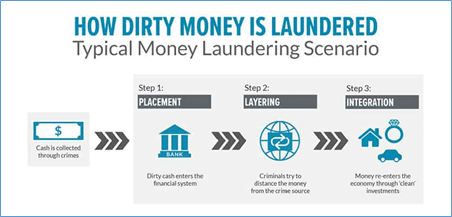Supreme Court overrides its own 2017 ruling to justify ‘drastic’ PMLA provision for bail
Context
Supreme Court upheld the Prevention of Money Laundering Act, including its stringent ‘twin-test of bail’ conditions that impose a reverse burden of proof on the accused.
Background
Key Points:
- In Nikesh Tarachand Shah vs Union of India (2017), the two-judge bench of Justices Rohinton Nariman and Sanjay Kishan Kaul had declared the ‘twin test’ of bail under PMLA as unconstitutional since it was manifestly arbitrary.
- These twin conditions are that the Court should be satisfied that:
-
- there are reasonable grounds for believing that the accused is not guilty of such an offense; and
- he is not likely to commit any offense while on bail
- In this judgment, the Court relied on Article 39 of the Constitution, part of the Directive Principles of State Policy that mandates the State to prevent the concentration of wealth and to uphold the stringent bail conditions under PMLA.
There are several legislations that have similar 'twin conditions'. E.g.: The terrorist and Disruptive Activities (Prevention) Act, 1987, the Maharashtra Control of Organized Crime Act, 1999, and the Narcotic Drugs and Psychotropic Substances Act, 1985.
Court Observation:
- The court stressed upon doubly satisfying itself before application of section 45 of PMLA, which makes drastic inroads into the fundamental right of personal liberty guaranteed by Article 21 of the Constitution of India.
|
About Section 45 of PMLA:
|
- Presence of Compelling interests: The Supreme court has said that provisions of section 45 have only been upheld on the ground that there is a compelling State interest in tackling crimes of extremely heinous nature and stringent bail conditions can be imposed in exceptional circumstances such as anti-terrorism laws, but cannot be manifestly arbitrary.
Prevention of Money Laundering Act (PMLA), 2002:
- Money Laundering refers to the conversion or misrepresentation of money which has been illegally obtained by unlawful sources and methods.
- It is a criminal offense in India and charges in this instance refer to statutory provisions of the Prevention of Money Laundering Act, 2002.
- The PMLA is one of the responses to India’s global commitment (Vienna Convention 1988) to combat the menace of money laundering.
|
Vienna Convention on Money Laundering:
|

Recent Amendments in PMLA:
- Money Laundering Redefined: Money Laundering was not an independent crime but rather depended on another crime, known as the predicate offense or scheduled offense.
- Clarification about the Position of Proceeds of Crime: Proceeds of the Crime not only include the property derived from the scheduled offense but would also include any other property derived or obtained indulging in any criminal activity relate-able or similar to the scheduled offense.
- Continuing Nature of Offence: This amendment further mentioned that the person will be considered to be involved in the offense of money laundering till the time that person is getting the fruits of activities related to money laundering as this offense is of a continuing nature.
|
‘Presumption of Innocence’ and ‘Reverse Burden of Proof’:
|
Position in India: Presence of Both Principles
- Although not clearly laid down in any legislation, the Presumption of Innocence is a recognized principle of criminal law in India. The Indian Judiciary has recognized the presumption of Innocence under Articles 20 and 21 of the Constitution. In the landmark Maneka Gandhi case, the presumption of innocence was held to the fundamental right of the accused.
- Section 101 and 106 of the Indian Evidence Act of 1872 talk about the burden of proof, but not whether such burden is upon the Prosecution or Defense.
Reasons for Incorporating Reverse Onus:
- Helpful in curbing grave offenses: The 47th law commission report of India suggested that certain crimes gravely affect and harm society and so for such crimes it is necessary to dispense with the burden of the prosecution.
- Deterrent effect: The burden of proof is generally shifted to gain convictions in such offenses where deterrence considerations are greater. In that light, an example is dowry death.
- Judicial Convenience: It is argued that it becomes more convenient and easier for the Prosecution to prove the basic fact that shifts the burden. For the sake of expediency and judicial economy, the lawmakers take this argument to reverse the burden.
- Judicially Valid: The position is settled in N. Krishnalal v. Government of Kerala, where the court held that the presumption of innocence is not a constitutional guarantee and can be dispensed with by legislative imperatives and action.
Conclusion
The offense of money laundering has been regarded as an aggravated form of crime “world over”. It is, therefore, a separate class of offense requiring effective and stringent measures to combat the menace of money laundering,” but it is also important that it should not intrude into the fundamental right of personal liberty guaranteed by Article 21 of the Constitution of India.





